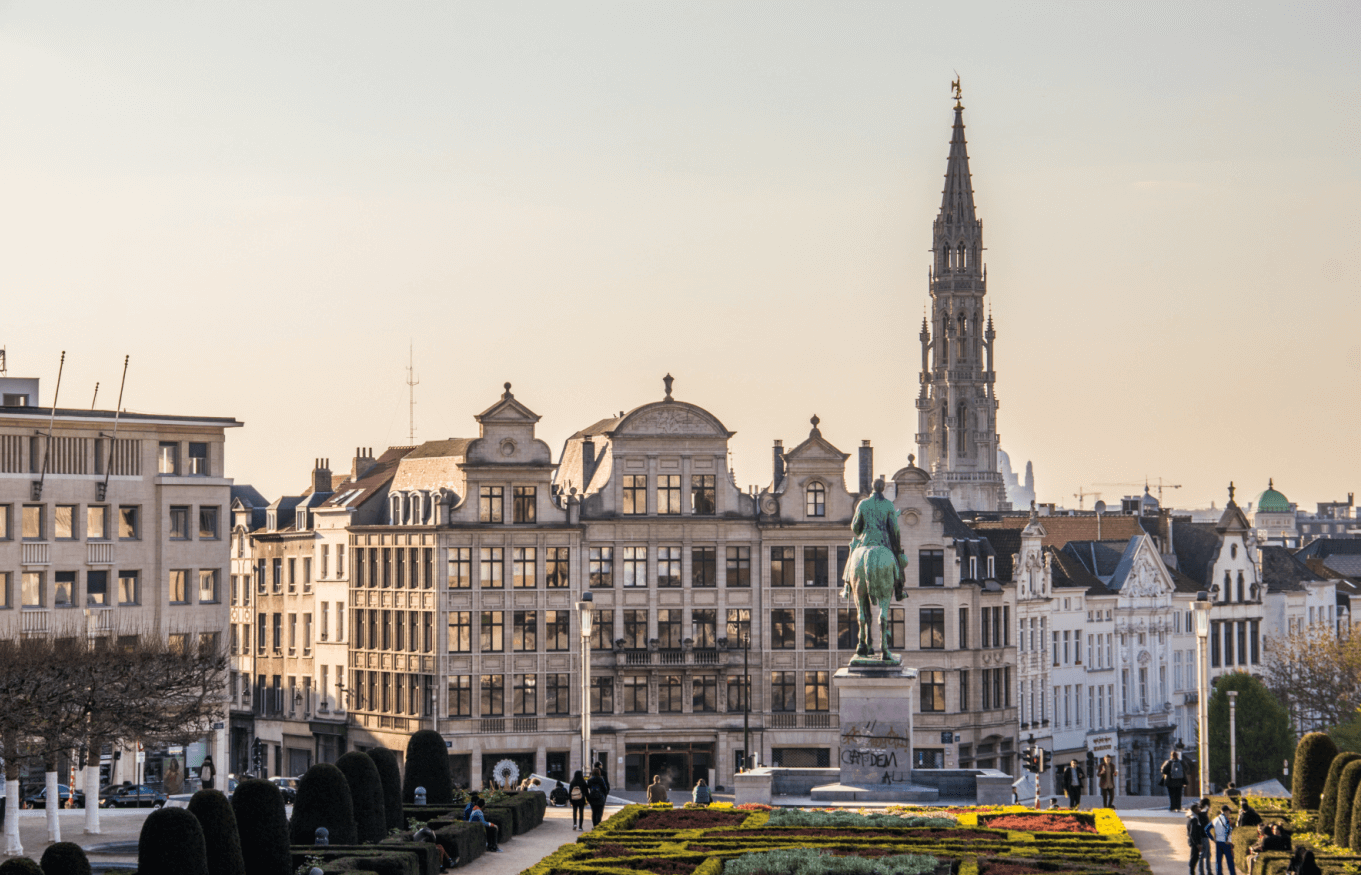
1. Introduction
Brussels is the capital and largest city of Belgium and the seat of the main administrative body of the European Union. With an area of approximately 162 square kilometres and a population of approximately 1.17 million, the Brussels region is known as the 'heart' of Europe and the 'ten largest cities in Europe'.
The "Word Junction". The Brussels region is the second largest economic centre in Belgium and is ranked among the top business cities in Europe. The main industries are modern services, including banking, insurance, consulting, education, tourism, and to a lesser extent manufacturing.

 Photo by paul-deetman
Photo by paul-deetman
https://www.pexels.com/zh-cn/search/%E5%B8%83%E9%B2%81%E5%A1%9E%E5%B0%94/
2. Overview of innovation development
(1) Innovative development strategies
The economy of Brussels is dominated by the service sector, which provides professional and day-to-day services to the major institutions of the European Union and NATO. According to statistics, between 4% and 10% of the region's workforce is employed in industries related to the provision of services to EU institutions. In order to accelerate the optimisation of the industrial structure, the government has started to develop three key innovative sectors: digitalisation, financial technology and life sciences, in order to integrate into the new wave of global industrial change and technological innovation, based on the original pattern of services and manufacturing.
(2) Innovative Development Subjects
A. Government agency: Brussels Foreign Investment and Trade Promotion Agency is responsible for coordination of the Regional Agency for the Location of Scientific and Creative Enterprises and the Admission of Talents was set up to maintain and develop friendly relations with countries on behalf of the Brussels Region, to provide services to foreign companies planning to invest in the Brussels Region and to assist Brussels Region companies in developing their markets abroad. Amongst other things, it has made it a priority to attract innovative companies and talents to the region. To achieve these objectives, the Agency provides free office space and equipment to foreign companies wishing to set up in Brussels, as well as a range of professional services for setting up in Brussels, including tax and legal advice, guidance on company registration, advice on official or other funding policies, guidance on governmental contacts, advice on office locations, advice on staff recruitment, etc. The Brussels Foreign Investment and Trade Promotion Agency currently has representative offices in Beijing, Shanghai and Shenzhen, China.


 Photo by petar-starčević
Photo by petar-starčević
https://www.pexels.com/zh-cn/search/%E5%B8%83%E9%B2%81%E5%A1%9E%E5%B0%94/
B. Universities and research institutions: technological innovation cannot be achieved without the essential support of basic and applied basic research. Institutions of higher learning, led by the Katholieke Universiteit Leuven in the Dutch-speaking part of Belgium (with a campus in Brussels) and the Université Libre de Bruxelles, continue to provide strong support for scientific and technological innovation in Brussels and Belgium as a whole. According to the Times Higher Education World University Rankings 2018, KU Leuven is ranked 47th in the world and the Université Libre de Bruxelles is ranked 175th. The academic institutions, including these two universities, provide important material and subject resources for basic and applied basic research in science and technology innovation through the industrial parks formed around their campuses in the form of complementary industry-academia-research. Established in 1984, the Belgian Microelectronics Research Centre (IMEC) is strategically positioned as a leading global centre for forward-looking major innovations in nanoelectronics and digital technologies. Nokia, etc., with 4,000 researchers from nearly 80 countries. In recent years, with the support of R&D platforms and industrial partners such as IMEC, the European lithography industry giant, represented by ASML, has emerged to lead the world into new "milestones" of innovation in IC process technology.
C. important companies: in March 2018, Fujitsu set up an international blockchain innovation centre in Brussels to enable research and development of blockchain technology in several areas. in March 2019, Huawei set up a cybersecurity transparency centre in Brussels, aiming to build a platform for close cooperation and exchange between multiple parties, including government agencies, technical experts, industry associations and standards organisations, in order to The centre aims to build a platform for close cooperation and exchange among government agencies, technical experts, industry associations, standards organisations and other parties to achieve a balance between development and security in the digital age. In addition, a number of leading global technology companies, including ZTE, Yiga Mobile, Microsoft, Google, Cisco, IBM and SAP, have also set up R&D facilities and offices in Brussels, working together to build an increasingly complete innovation ecosystem.

 Photo by skitterphoto
Photo by skitterphoto
https://www.pexels.com/zh-cn/search/%E5%B8%83%E9%B2%81%E5%A1%9E%E5%B0%94/
(3) Important innovation cooperation platforms
A. Brussels Innova: Brussels Innova has been organised annually since 1951. The fair aims to create an international platform for innovation, research, cutting-edge technology and entrepreneurship. Every year, the fair attracts a large number of project leaders and inventors from innovative companies, universities and research institutes.
B. Global Science, Technology and Innovation Conference: The Global Science, Technology and Innovation Conference (G-STIC) is an international event showcasing cutting-edge global science, technology and innovation, with a focus on technological solutions that contribute to the achievement of the United Nations Sustainable Development Goals. It is organised by VIVO, Belgium's leading independent not-for-profit research and technology institution, and its international partners IITD Delhi, TERI, ACTS and others.
C. EU-China Joint Innovation Centre: EU-China Joint Innovation Centre (EUCJIC) is an international non-profit organisation jointly led by 48 MEPs (European Parliament's European-China Friendship Group), former Belgian Ambassador to China and other EU politicians, entrepreneurs and innovation and entrepreneurship institutions in Brussels, aiming to strengthen the exchange and cooperation between China and Europe in innovation and entrepreneurship. The Innovation Centre is dedicated to the synchronisation of science and technology, joint innovation and joint entrepreneurship between China and the EU, and is an important resource hub, exchange and cooperation channel, financial support and professional innovation service platform between the EU and China in the field of innovation.
D.Sino-European Innovation Cooperation Dialogue: The Sino-European Innovation Cooperation Dialogue is a dialogue organised to implement the consensus of the Chinese and European leaders, to inject new connotations and provide new support to the comprehensive strategic partnership between China and Europe, and to continuously deepen the Sino-European cooperation in science, technology and innovation, which has been held every two years since 2013. The first Sino-European Innovation Cooperation Dialogue was held on 21 November 2013 at the Great Hall of the People in Beijing, in accordance with the Joint Declaration of the Sino-European Innovation Cooperation Dialogue signed by Chinese Minister of Science and Technology Wan Gang and EU Commissioner for Research and Innovation Quinn.

